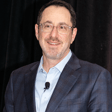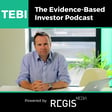Introduction to TEBI Podcast
00:00:04
Speaker
Hello and welcome to the TEBI podcast from The Evidence-Based Investor. I'm Robin Powell. This podcast is brought to you by Regis Media, which provides financial advice and planning firms with high-quality video content.
Neil Woodford Scandal Overview
00:00:20
Speaker
In this episode, we're discussing the Neil Woodford scandal.
00:00:25
Speaker
Woodford, for the benefit of those outside the UK, is Britain's best known fund manager. For many years his track record was very impressive. He was lauded in the media. He was even referred to by the BBC as the man who can't stop making money. But then things began to go wrong and three years ago the wheels came off in spectacular fashion when his flagship equity income fund was suspended.
00:00:56
Speaker
The industry, of course, as the industry usually does, did really rather well out of it. Woodford Equity Income was Britain's biggest fund launch. The fund earned a fortune for Woodford himself and for the many brokers and platforms who helped promote it.
Insights from Journalists
00:01:14
Speaker
The outcome for investors, however, was rather different. More than 300,000 people, many of them near or already in retirement, lost more than £1 billion between them in one of the biggest financial scandals of modern times.
00:01:32
Speaker
Our guests on this episode are two highly respected journalists who've each written a book on the Woodford saga.
Comparing Financial Scandals
00:01:41
Speaker
They are Owen Walker from the FT and David Ricketts from Dow Jones. I started by asking David Ricketts how the Woodford scandal compares with some of the other big financial scandals we've seen in the UK in recent years.
00:01:59
Speaker
Yeah, well, this is actually, this is a huge, huge scandal, particularly in financial services. I mean, if we look back at some of the other scandals that have taken place, if you look at the number of people that have been affected by the Woodford scandal, so around about 300,000 retail investors, that's a huge number of people nursing significant losses. Also, there's sums of money involved as well. I mean, we're looking at losses already around about £1 billion at least.
00:02:21
Speaker
If we compare that to some of the other scanners that have taken place recently, if we go back to 2009, the arch cruise scandal, for example, again, funds that were sold to investors on the premise they were low risk, these were actually nothing but. They were actually investing in very complex investments, including shipping and wine. Those funds blew up, affecting around about 20,000 retail investors and amounting to losses of around about 200 million or so.
00:02:50
Speaker
More recently, we've had the London Capital and Finance scandal. Again, that was something that was seen that happened under the FCA's watch. It affected a number of retail investors. Again, they were advised to invest in these mini bonds that were, again, perceived as low risk.
00:03:08
Speaker
again, another scandal that blew up. So I think we look at those two recent scandals, looking at Woodford in comparison, I mean, the fallout is huge. And I think if you look at the repercussions as well, the kind of fallout for the investment management sector more widely, what this means in terms of people taking
00:03:29
Speaker
financial decisions into their own hands and what it means for the advice market and everything else. I think that there's a huge fallout from all of this as well that really puts those other scandals I've mentioned probably lesser down the spectrum, I think. Owen, for you, why do you think Woodford stands out above those other scandals that David
Woodford's Reputation and Investment Strategies
00:03:52
Speaker
Yeah, and just to add some context there, I think probably the biggest financial scandal Britain's had in recent years is undoubtedly PPI, which, you know, that's 64 million policies which were missold, over 50 billion pounds of compensation from banks.
00:04:10
Speaker
So, with that in context, but David mentioned the investment scandals, which are depressingly common factor of the British recent history, miss selling scandals after miss selling scandals. The ones he mentioned were undoubtedly very bad, but they affected tens of thousands of people. With the Woodford case, we've got hundreds of thousands of people. This is the UK's best known fund manager of his generation, one of the biggest funds in Britain.
00:04:40
Speaker
And hundreds of thousands of people invested their hard-earned savings, their retirement pots with this man, with his funds, in expectation of getting an outcome which would really see them through into retirement. And what happened with the equity income fund? Its suspension and the
00:05:00
Speaker
billion pound-plus of losses these people will have, have made absolute life-changing consequences for them. And as David alluded to, huge ramifications for the investment management industry, but also the whole financial advisory model, the whole regulatory model that sits around that is supposed to be protecting consumers. It's just had huge ramifications.
00:05:22
Speaker
in the way that the earlier misselling scandals, they just didn't have that wider reach.
Investment Style and Crisis Roles
00:05:28
Speaker
David, the books that you've both written on this subject show that there were in fact a number of guilty players, if you like. To what extent is it all down to Woodford? And to what extent were other players responsible for what happened?
00:05:46
Speaker
Yeah, I think it's pretty unfair to pin all the blame on one individual or one party. I think we can maybe take a step back and look at what happened and who was guilty and who played a part in what happened. So, yeah, first of all, Woodford, the man himself, he was somebody who was, as Owens alluded to, this rock star fan manager. He built this incredible career while he was at Invesco over a 20-year period. He generated
00:06:12
Speaker
superior returns, if you like, compared to his peers, his rivals, and investors who invested money in his fund during the late 80s were richly rewarded with returns over the 25 years that he was at that firm.
00:06:28
Speaker
He built his name because he managed to avoid two big milestone events, if you like, in the British financial services history. If we look at the dot-com bubble in 2000, when that burst, Woodford was somebody who invested in tobacco stocks, big blue chip companies. That was his style. And when the tech stocks
00:06:52
Speaker
or went belly up, he was vindicated. He was facing a lot of pressure to follow the herd and invest in some of these companies, particularly even by his superiors at Invesco, who wondered why are all the other fund managers piling into tech stocks and you're just kind of sticking to what you know best. But yeah, when the dot-com bubble burst, he was vindicated and again, his investors were actually rewarded, as was he.
00:07:18
Speaker
He managed to do the same thing again during the financial crisis, managed to avoid all the bank stocks. So again, when everything went belly up then, he was vindicated and his investors were rewarded as a result of that. The reason I sort of talk about his investment style is he started to stray away from that sort of
00:07:38
Speaker
mainstream kind of investment philosophy where he looked at investing in very large liquid companies and started to favour the smaller maybe startup companies that were harder to trade, harder to buy and sell shares in. So that's one thing we can talk a bit more about, but I think his style of drift, if you like, towards the end of his career at Invesco and particularly when he set up his new firm and his new fund in 2014 when he struck out on his own.
00:08:04
Speaker
That was one thing that maybe led to the downfall, the kind of style of investment management that he was pursuing. So that's one thing that perhaps we can portion some blame for that, the change in style.
Responsibilities of Key Players
00:08:18
Speaker
There are a host of other players involved in this as well. There's Hargreaves Lansdowne, who again, we can talk a bit more about how they championed
00:08:25
Speaker
Neil Woodford's fund right from the outset. The heavy promotion the fund was given during the offer period. This was a fund that went on to become the most successful new fund launch in British history. So retail investors were encouraged to invest large sums of money in this fund. Peter Hargreaves, the co-founder of Hargreaves Lansdowne, telling investors he was putting his own money in that fund. Mark Dampier, the head of investment research at Hargreaves Lansdowne at the time. Again, someone else who plugged that fund very heavily.
00:08:55
Speaker
Hargreaves Lansdowne continued to promote that fund even during a period where performance started to turn and the role of questions around why that was the case. So I think there are a few questions around Hargreaves Lansdowne's role of this as well.
00:09:11
Speaker
Undoubtedly, a lot of people look at the FCA and the regulators royal this, why the warning signs weren't picked up sooner. There are lots of question marks around the culture and compliance at Woodford's new firm, why the FCA didn't pick up on that sooner. Again, that's something they need to answer. But I think the biggest question mark and perhaps the
00:09:34
Speaker
The player that gets a lot of attention is Lynx, the authorised corporate director, the entity that was overseeing Woodford's main fund, should have been checking that he was adhering to the compliance, the rules around investment management. That was the entity that was answerable to the FCA and that's the entity that now a lot of questions are being asked about.
00:09:57
Speaker
We have some law firms now even pursuing legal action against Link to try and recoup some of the losses on behalf of investors. So Link is another entity that does have a lot to answer for. So those to me are the kind of the four main players in this story. And yeah, those are the ones I think stand out for me as the ones who are, yeah, ones who need to answer questions about
Transparency and Oversight Issues
00:10:22
Speaker
So Owen we saw this drift away from the style that had been successful for Neil Woodford in the past and you could say he started to focus on an area that he really had no experience or very little experience in and
00:10:42
Speaker
Yes, he was partly to blame for that, but surely there were other people who should have seen the warning signs, if you like, that he was actually straying off peace. Surely they have something to answer for here.
00:10:59
Speaker
Yeah, I mean, the thing about when Woodford launched his new business in 2014, he went out there and one of the big attractions to a lot of people was how transparent it was going to be. Unlike a lot of other fund managers, he was going to show every single investment he made within his funds. A lot of other fund managers will only show you the top 10 holdings.
00:11:21
Speaker
So what he was doing was in plain sight from the off. His investments in these small unlisted, unquoted companies, his small, very thinly traded companies, it was in full view. He would produce these documents monthly, which would show every single holding. At the very beginning, they were very small, and most people probably didn't get to that page in the documentation.
00:11:45
Speaker
Though if you're somebody like, for example, Hargreaves Lansdowne, who is heavily promoting these funds, it is your job to be looking at those documents and scrutinising every single holding and looking at the liquidity of each of those holdings and stress testing to make sure that if, as we saw happened, there is a run on the fund, people pulling money out, he'll be forced to
00:12:08
Speaker
sell his most traded companies, the FTSE 100 companies, the blue chips he'd been most closely associated with, he would then be left with this rump of small, small cap, unquoted companies which he would really struggle to sell. So it would be the likes of the fund promoters, the intermediaries, the financial advisors who were promoting his funds to their clients. They should be aware of this.
00:12:35
Speaker
Likewise, his compliance team within the business, I think David did a good job of talking about the various people who were involved in this. The compliance team within the business would have been fully aware of the holdings and the sorts of pressure that would happen in the event that the fund came under stress.
Investor Responsibility and Best Buy Lists
00:12:51
Speaker
as should have the people like the Depository, Northern Trust or the Authorised Corporate Director link. These people should be very much focused on what was going on. And the Financial Conduct Authority as well, this information was out there, they really should have been on the ball. They outsourced a lot of that decision making and oversight to the Authorised Corporate Director to link.
00:13:13
Speaker
And, as we've seen, the results of a lot of people kind of looking the other way and not really paying close enough attention to what was going on had really, really bad consequences. How much sympathy do you both have for the investors involved? I mean, you could say, playing devil's advocate, that they should have been aware of the risks.
00:13:38
Speaker
We know the data on active fun performance and the fact that past performance doesn't predict future performance, if you like. How much sympathy do you have?
00:13:50
Speaker
Well, I think it's very difficult as a retail investor now. I mean, there's a lot of emphasis on you as an individual to make your own investment decision, particularly when it comes to retail retirement. So the DC pension model, for example, places more emphasis on the risk on the individual. And obviously, there is an environment now where there is more DIY investment platforms and people taking financial matters into their own hands because it's cheap, it's easy to do.
00:14:16
Speaker
But what I would say is that people taking financial decisions need to do their research and I think that's the key thing. This is one of the lessons I think that needs to be learned for all this is that despite the information that's out there, you do need to kind of do your research and make sure there are no kind of biases or any kind of hidden agendas involved in why a fund is being promoted.
00:14:37
Speaker
So with the case of Harbury's Lansdowne, for example, this fund was, again, heavily promoted by the platform. It was on the Best Buy list. Now, Best Buy lists is probably an area that will come under a lot more scrutiny as a result of the Woodford scandal. But, you know, Neil Woodford's fund was promoted on that Best Buy list even at a time when Harbury's Lansdowne had concerns about the performance and were starting to ask questions about the number of unquoted companies he was holding.
00:15:05
Speaker
There's a question to be asked there about why is a fund buy list which is so influential. It drives a lot of money into funds because that is a list that investors go to because they trust the platform that's providing it to have done the background research.
00:15:23
Speaker
You know, these guys are the experts, so you would expect the experts to have the kind of inside track on what's going on. So I think, you know, I do have sympathy for those investors that relied on those buy lists to some extent because they felt that the research
00:15:38
Speaker
had been done to a high enough standard. Having spoken to people that worked at Hargreaves Lansdowne in the research from my book, the impression I got was that Neil Woodford had come from this large investment management operation in Vesco where he'd worked for 25 years.
00:15:54
Speaker
and he'd set up this new fund. The expectation was that he would just carry on doing what he was doing at Invesco. Now, if you go and speak to any other new fund manager coming into the market, they will tell you that they have to jump through a lot of hoops before they get put onto a Best Buy list. You need a track record of at least three years before you're even looked at. So launching a new fund should not necessarily be seen as carrying
Media's Role in Woodford's Fame
00:16:18
Speaker
on what you're doing at your old shop. This was a brand new fund that should have been given
00:16:24
Speaker
a lot more scrutiny than it was actually given from the outset. So I do have a lot of sympathy for investors. So just to pick up on that point, when Woodford launched, this was the most anticipated fund launch probably ever in Britain. This was the most famous fund manager who was going alone and he was launching his own business. And there was a great clamour among financial advisors,
00:16:48
Speaker
journalists and to be part of that, to have some sort of coverage or to kind of present it in some way. And a lot of the intermediaries, the fund supermarkets were desperate to have this fund on their platforms and Hargreaves bent over backwards and offered more than the competitors to say we want you on our best buy list and we want to invest our own
00:17:14
Speaker
funds in your fund, our multi-manager funds in your fund, and we'll do that from day one. And in return, you give us the biggest discount on the market so that we can then go out and promote, and they had this in their marketing material, come to Hargreaves Lansdowne to invest in Neil Woodford's new fund, the cheapest place on the market.
00:17:34
Speaker
And that was very much, they got a lot of new customers on the back of it. They put a lot of marketing spend into promoting it in that way. And so that's where you can see there was a lot of emphasis on promoting this fund to their own clients and actually to their own customers to bring in customers on the back of this promotion. And so that's why we see there was a lot of promotion of the fund. And as David says, on Best Buy lists,
00:18:01
Speaker
And so if you're an end investor and you've been told this guy is the best fund manager around, he's got a new business, this is the way to get on his fund, the cheapest cost in the market, sounds great. These guys are supposed to be financial experts. They're telling me to do this.
00:18:17
Speaker
It's very hard to blame them. We shouldn't forget as well the media following that Woodford had. He was seen as a rock star fan manager. The financial press loved him. He was somebody who generated incredible returns over his career. And he was lauded as this guy who had the mightiest touch of the Oracle of Oxford he was known as.
00:18:37
Speaker
So there was a kind of a buzz, a hype around this new fund launch as well. That's why it went on to become the most successful fund launch in British history. So there was a big story around Neil Woodford when he decided to launch his new venture. And I think there are a lot of retail investors who perhaps got caught up in the hype. And we shouldn't forget that a lot of those investors that were with him during his time at Invesco would have followed him out of the door.
00:19:02
Speaker
to his new venture as well. So again, the expectation was that he would have carried on doing what he was doing at Invesco. And the other point to raise here about sympathy for retail investors is that when that fund was initially launched, the equity income fund, the holdings, when it was revealed, as I would have alluded to, this was billed as being very transparent. The full list of holdings was put out there.
00:19:26
Speaker
There are lots of blue chip companies that Woodford had invested in the past in there, but there were a few unquoted companies that started to creep in as well. By the time that fund, two or three years later, you've got the likes of Jupiter, a large city institution investor pulling their money from the fund because they started to have concerns about the number of unquoteds in the portfolio. So if you've got a large institution investor having concerns about this, what hope?
00:19:55
Speaker
have the retail investor got really, but we don't have the same level of knowledge and sophistication as the guys who are running tens, hundreds of billions of pounds. So I do have some sympathy for retail investors there who perhaps weren't aware that Woodford had strayed so heavily into the unquoteds because I think the big players here in the city had definitely seen the writing was on the wall.
Culture Shift in Fund Management
00:20:21
Speaker
Owen, as David said, Woodford was heavily promoted in the financial media. I know that neither of your publications were promoting his fund, but lots of media outlets were. And there's a problem here, isn't there? Because journalists, and I'm a journalist myself, we need stories. And Woodford was a story.
00:20:45
Speaker
Yeah, absolutely. And this taps into this whole idea of star fund managers. And this culture really came about in, say, the 80s and 90s, the early 2000s. We're all financial journalists. You go in, you're writing stories about numbers. But you want a character. You want a story. You want some color in there. And Neil Woodford provided that in spades.
00:21:10
Speaker
He was down to earth in many ways. He lived a lifestyle. He was a multimillionaire, but he lived a lifestyle maybe that we might imagine. If we came into money, he bought fast cars, big places in the countryside, later got into a lifestyle of fast horses.
00:21:29
Speaker
Maybe I wouldn't have bought the horses, but that's beside the point. So he kind of lived this lifestyle, but also the way he spoke to journalists was very much matter of factly. He could explain what was his portfolio, what his strategy was, in very easy to understand terms. And that really came across compared to maybe a lot of the stuffier, the more bookier fund managers that we're more used to dealing with.
00:21:55
Speaker
So his personality became the story as well. But also his returns, he did have these incredible returns, certainly for long periods throughout his career. And as David alluded to earlier, he had these two near-death experiences, the dot-com bubble bursting and the financial crash.
00:22:14
Speaker
Both of which he kind of sailed through unscathed. So the Financial Press certainly built him up. And this story of a guy who could read the runes, he could find out what was going on and he could see into the future. And I think he really believed that his own press, because in the dying days of his own business, he was convinced and hell-bent
00:22:35
Speaker
having spoken to people who he worked with, that his course would see him through and he'd survive these two experiences before and he was going to come through again. But that staff and manager culture really relies on individuals and their own
00:22:58
Speaker
powers in the investment markets. Now, if you speak to any statistician, eventually there will be a reversion to mean. You cannot have a winning streak that goes on for years without at some point spectacularly collapsing. That's just the way the rules of economics work.
00:23:21
Speaker
So, while you may get some managers who are a bit bumpy, you do get these others whose strategies dictate that they go on really great runs for several years and they just come crashing down to earth. And that was very much Woodford style was that. So, what you do get often with the staff fund managers is they do have these streaks and then it comes to an end and people say, well, why do we trust, why do we go in with this guy in the first place?
00:23:46
Speaker
because it all went spectacularly wrong. And we saw a lot of those stories happening in the 2010s. And I think now we're kind of moving away from that model. I think, yeah, I'll just add to that. I think actually the kind of star fund manager culture was kind of starting to be on its way out really before the whole Woodford scandal erupted. But certainly now what you are seeing is more of a team-based approach. I think if you talk to all of asset managers,
00:24:08
Speaker
in London, here in the city, they will emphasise the team player mentality of their firms rather than the key individuals. I think they've learnt from not only Woodford, but if we go back several years ago to PIMCO, for example, where Bill Gross, who managed tens of billions of dollars over one of their flagship funds, as soon as he left PIMCO, they lost
00:24:32
Speaker
billions of dollars just went out of the firm overnight. So again, a key man risk, if you like, by putting all the assets with one person. And I think that's something that firms have tried to steer away from ever since. Having said that, there are
00:24:49
Speaker
still individuals here in the UK retail market that do command that kind of star culture, Terry Smith being the most notable example, one of the best-selling retail firm managers here in the UK. But I think even Terry Smith is starting to realise that he needs to talk more about succession planning, who within FunSmith is likely to take over the baton
00:25:09
Speaker
when he retires. So I think even some of the staff fund managers themselves have started to realise that maybe they need to talk up their succession planning a bit more now to allay any concerns retail investors might have about what happens when this person steps down or leaves unexpectedly, what will happen to the fund and to my money, essentially.
Lessons Learned from Woodford
00:25:29
Speaker
You say, David, that asset managers have learnt from Woodford
00:25:33
Speaker
And let's hope they have. The crucial thing, of course, is have investors learn from Woodford. And even since then, I mean, in Australia, for example, we've seen this guy, Hamish Douglas, not as spectacular as Neil Woodford, but a similar fall to earth, if you like. And of course, very spectacularly in the United States. We've seen Cathie Wood and the extraordinary demise of the Arc Innovation ETF.
00:26:03
Speaker
Owen, is this a story that will just carry on repeating itself again and again? Well, I would like to hope not. I think we do have an actual human instinct to put our faith in individuals and there's certainly very strong investor traits to want to capture a star on the way up.
00:26:26
Speaker
which means that often people will start investing in a fund past its ascension actually probably when it's on its way down and you gave some good examples there because it's only really when these people have accumulated their
00:26:44
Speaker
year-long or two-year-long streak and they're kind of, you know, outdoing the market by, you know, 20, 30 percent. That's when people really take a notice. But, you know, you'd probably say that's probably the time to bail on those funds because it can't continue forever. So hopefully we will be moving to a period where those sorts of individuals and names will be promoted
Passive vs Thematic Investments
00:27:08
Speaker
less. But unfortunately, I think it is human instinct that we'll probably never escape
00:27:12
Speaker
the kind of the lure of the star and the person who's really excelling when that's probably a warning sign to maybe that's the time to bail. The data shows us overwhelmingly that in the long run investors are much better off avoiding star fund managers indeed active fund management altogether and simply investing in the whole market in a very low cost and efficient way but of course that's a
00:27:40
Speaker
a boring story, isn't it? Is that the problem? And is that something that the media as well as the industry needs to address, that actually what's best for the investor is actually quite dull, but they need to be told?
00:28:01
Speaker
That's a good point. I think actually you're right. I think if we look at passive funds ETFs, they can be kind of seen as boring compared to star fund managers or stock pickers who are kind of making decisions every day about which companies to invest in and providing an argument about why they're doing that. So I think, yeah, there is certainly more of an interest in the media, if you like, from the media in some of these fund managers about why they're investing in certain companies, what's the rationale for investing in
00:28:28
Speaker
in this particular company and what's the long-term outlook if you like? What's your argument for doing so? I think at a time when you look at the track record of a lot of active fund managers, very few fund managers actually beat the benchmark over a five or ten year period, so the evidence is
00:28:49
Speaker
very much out there, very strong evidence that actually investors will be better off putting their money in funds that are low cost and simply track the benchmark in many cases. I think there are pockets of interest in some of those areas as well. So for example, the rise of thematic ETFs, funds that kind of capture a trend or a story, if you like. I think we're seeing a lot more interest
00:29:15
Speaker
in those areas, so funds that are very much geared towards robotics or, you know, cyber security. These are kind of funds at the moment that are seen as hot, you know, investment topics because, you know, during a time when we've all lived through a pandemic, you know, these are the themes that have taken off, particularly as the rise of tech stocks have kind of, we've seen the rise of a lot of tech companies and the downfall now. You know, thematic ETFs that track those stories have done very well and again, they are
00:29:45
Speaker
They're low cost. They're easy to understand. They're transparent. You get a sense of where your money's going. And perhaps there needs to be more focus on some of these kind of more boring or straightforward, simplistic investment products, as opposed to the manager-led or manager-run funds that, perhaps, investors have been fed from financial publications and other media.
Risks of Thematic Funds
00:30:14
Speaker
I can see from the point of view of a journalist or a fund marketer that thematic investing appeals because it kind of comes with a ready-made narrative doesn't it but there's been a lot of research into thematic fund performance by Morningstar for example and they show exactly the same thing happens with thematic funds as happens with active managers
00:30:36
Speaker
The theme becomes popular after it has already outperformed. That's in a sense what makes it popular. Investors dive in too late. There's a reversion to the mean and investors lose out. What's your view on that? Absolutely. I think you explained it very well. And to your point earlier,
00:31:00
Speaker
You know, I think if a sensible approach to investing isn't lump all your eggs into the growth stocks or the tech stocks ETF, latest flavor of the month, maybe if that's an interest for you, you might put in a, you know, five, 10% of your portfolio and we'll see what happens. But it's just to spread it out. It's rule 101 of investing, which is to diversify your risk, to do it in, as you mentioned earlier, in a low cost way to get exposure to
00:31:30
Speaker
various parts of the market, some of which won't be as fast-moving as others, but that's maybe your protection in case there's a pullback against them. And if we're talking for long-term investment strategy, that would be the way to do it. To cotton on to the latest fad trend is, as you say, is just
00:31:50
Speaker
making exactly the same mistake as cottoning onto the latest FAD fund manager that people are making that mistake 10, 20 years ago or even five years ago in Woodford's case. It is about stripping back and stepping away from all of the noise and the excitement and the froth
00:32:11
Speaker
and actually saying, I want a wide exposure, and yes, I'm interested in tech stocks, I'm interested in Tesla, whatever. This ETF gives me a bit more exposure than others. That's maybe my 10% little play around account, part of the portfolio. That's where I sort of play around with a personal interest, but the rest of it is very much pushing forward in multiple directions. I've got to say that actually one of the things that brings this to mind actually, talking about the hot trend at the moment, if you look at
00:32:40
Speaker
There are several ETFs now that are coddling onto the metaverse. We've seen a lot of metaverse products launch. I worry that, again, this is an area of the market that is tapping into investor interest in this area. Really, to be honest, I don't think a lot of people really understand, A, what the metaverse is, but also what the potential is long-term for this. I think even Facebook.
00:33:01
Speaker
or meta platforms, as it's now known, has thrown a load of money at developing the
Concerns on ESG Investing
00:33:08
Speaker
metaverse. But no one quite knows what it's going to look like. And even now, we're getting products devoted to this particular sector. So I do worry that there is a nascent area of the industry that's growing now, that's promoting products to catch on to a trend that is seen as popular. People are talking about this sort of stuff on social media.
00:33:30
Speaker
And I kind of worry that investors were caught up in the hype. Again, putting money into a product without a track record and really understanding where this thing's going to go in the future. And one area that I'm particularly concerned about, and it's a longer term trend, is the whole idea of ESG.
00:33:48
Speaker
because undoubtedly most people, and it's a very good thing, want to invest in things on an ethical basis, and that's great. However, the marketers have really caught on to this over the past 10, 15 years.
00:34:03
Speaker
And all the big fund management companies, all the big investment advisory companies will be promoting ESG products. Now, at the moment, there is no standard definition of what ESG means or even the various subcategories of that. So what you think of ESG could be very different to what I think, to what David thinks is one fund, packaged in that way, going to firstly satisfy all of our interests. But secondly, and more importantly,
00:34:31
Speaker
Will it be doing what it says it's doing? Some fund companies may be labeling a fund ESG because it invests in companies that, I don't know, don't actively burn down the rainforest. Well, they could be doing all sorts of other things that are damaging to the environment or have horrendous social and governance issues.
00:34:53
Speaker
But that could be their very narrow interpretation of what ESG means. It's not what my interpretation means and therefore am I investing in this product thinking that's what it's going to be doing.
00:35:04
Speaker
You know, step forward. And I can see this being a big area of potential misselling in the future where, you know, maybe there's lawsuits.
Critique of the FCA's Role
00:35:12
Speaker
And we already see regulators taking a very keen interest in some of the claims made by fund managers and other financial institutions on their ESG products. And I can see this being a hotbed of lawyers getting involved in a few years, Tom, and saying, well, look, my client invested tens of thousands of pounds in your fund.
00:35:31
Speaker
expecting it to be delivering these sorts of returns and investing these sorts of companies and avoiding these sorts of companies, it hasn't done that. We believe that they've been missold. And I think personally that will be a hot air in a few years' time. Yeah, I think actually you're completely right. I think when you talk to asset managers now, the one thing they want to talk about, the number one thing is what we're doing from the industry perspective. And there's a lot of
00:35:54
Speaker
marketing money that's been sort of thrown behind this idea as well. As Owen rightly said, there are a lot of question marks about what ESG stands for, if this fund or this asset manager is doing what they say they're doing. So this term greenwashing is something that's bounded about quite a bit now. Are asset managers responsible or guilty of saying they're going to do something, but actually when investors look back in years to come and think, well, my expectation was
00:36:23
Speaker
you said you were going to do this from an ESG perspective and this investment product you've sold me has not lived up to any of those expectations. It's a very grey area and I think actually when we talk about the future for misselling scandals to happen, I think Owen's absolutely right. This is a potential area now where people are piling a lot of money
00:36:42
Speaker
marketing spend into and investors are being sort of fed this story that ESG can really only go one way because all the evidence that is out there shows that the firms with the best ESG credentials, the companies that have the strongest ESG credentials are the ones that deliver the best returns for investors. So I think that certainly is an area to keep an eye on.
00:37:07
Speaker
I'm very interested to hear what both of you think about the FCA's role in this. First of all, the role it played in the scandal itself and stopping it happening, if you like, but also the very, very slow response that we've seen since then. What do you make of that, Owen? Well, I think the FCA's flaws were there
00:37:31
Speaker
They pre-existed Woodford's fund launch in 2014. So even if you go back a year or so, when he decided to launch his business, he was already under investigation by the FCA for the funds that he was running, among other funds, at Vesco Perpetual.
00:37:48
Speaker
And at the time, the FCA fined Invesco Perpetual £18.6 million, which was the biggest fine for a fund management company in the UK at the time. And his funds were one of those that the FCA had been scrutinising for the amount of risk they were exposing investors to.
00:38:07
Speaker
So that is the context through which Woodford then, just a few months later, appealed to the FCA to launch his new business, which it gave him the green light in record time.
00:38:22
Speaker
And so you really have to wonder what happened at that point. The FSA has just put the UK's best known fund manager through the ringer over his funds and then is letting him set up a new business in record time. Much smaller business, much smaller compliance team to sit around him. And at the same time, these are documents that I've seen. When Woodford launched his business, he actually wanted a different authorized corporate director.
00:38:49
Speaker
But the FCA insisted to use what was then capital now, LINK, as the ACD. And it had actually already investigated LINK for its role in previous fund scandals. Now, as far as I understand it, the rationale at the FCA was to put these two
00:39:08
Speaker
organizations together because they thought they would feed off each other because they'd recently been maybe scarred from having been investigated by the FCA and therefore would kind of push each other back towards being better run in a stronger compliance function. What actually happened was the reverse. So you can trace the FCA's failings right from those decisions in early 2014.
00:39:33
Speaker
A year later two of the founders of Woodford's new business quit after falling out of Woodford and his business partner Craig Newman. Now as part of their, they were very high profile roles in the industry and as part of that they were required to have ex-interviews with the FCA and talk about some of the issues that they had seen within the business.
00:39:58
Speaker
The FCA did not act on those issues. This was an early red flag a year after it launched. The first time it started actively looking at Woodford's business was 18 months later when coincidentally it happened to come across a conflict of interest in the way that some of the companies that Woodford was investing in, the way they were valued. Yet again, this didn't really prompt much interest within the FCA. You have to go forward to 2018
00:40:26
Speaker
when the FC actually started looking at Woodford's business more closely because he was breaching this so-called trash ratio where 10% of his portfolio was invested in unquoted assets. And it breached that level on a couple of occasions. And that's only when the FC took a very keen interest in the business. And then it did stay in touch for the final year up to the fund suspension and its closure.
00:40:51
Speaker
So you have to ask why weren't all these red flags up to that point picked up and why didn't the FCA take a stronger role in making sure the business was running in a more compliant, more stricter, more firmer approach and actually containing Woodford's instinct to invest in some of these smaller and unlisted companies. And then you throw it forward to after the funnel was suspended and what's happened since. Now we're coming up to
00:41:19
Speaker
the third anniversary of when the fund was suspended. In that time, David and I have both written books. They've both come out, and they've both been published for more than a year. Well-researched books, I might add, both of them. What has the FCA been doing in that time? We still haven't had their in-depth report. They've got far better access than us, because they can compel key people to talk to them. We can only try and persuade key people to talk to us.
00:41:46
Speaker
They've had this access, and apparently, in their latest disclosure, it was just before the end of the year, they said they conducted all their research, i.e. they'd done all their interviews. They were just waiting to put it together and bring out a report. Now, at the time of recording, that report still hasn't come out. There are hundreds of thousands of people who have lost over a billion pounds in this scandal, who are waiting for answers.
00:42:12
Speaker
And their legal claims are being held up on the back of, firstly, this FCA report and whether or not they will get compensation, which looks like it's going to struggle on for another year or so. So there is a lot of anticipation about what is going to come out in this report. The Treasury Select Committee have already admonished the FCA for their delays here.
00:42:31
Speaker
And it just really sets even more questions about what's going on within the FCA, why aren't they picking up early red flags, early warning signs, early whistleblowing. I spoke to several people who blew the whistle on Woodford's business throughout its time going and all those warnings were kind of ignored or maybe shoved in a box somewhere.
00:42:53
Speaker
And yet the time it's taken to even come up with a report which looks into the failings within this group, it smacks of an organisation which does not have its ducks in line internally, it cannot communicate internally, different parts of the organisation don't talk to one another.
00:43:10
Speaker
the people who are responsible for receiving whistle burrows or having conversations with departing directors and receiving red flags. Don't talk to the people who have direct responsibility with oversight of the Woodford business. Don't talk to people who have more direct oversight with LingQ for example.
00:43:27
Speaker
So there's institutional and governance failures within the FCA, which have really been brought to light by the Woodford scandal. So David, what's your view on why the FCA has dragged its feet so badly? Well, as Ellen said, this really has been taking place at a snail's place. The FCA investigation into the circumstances surrounding the suspension of the equity income fund launched
00:43:52
Speaker
soon after June 2019 when the announcement was made by link that the fund would be suspended. So yeah, we're coming to three years now and there is still no final report from the FCA, no answers for the hundreds of thousands of people that are still locked in that fund.
00:44:10
Speaker
Unfortunately a lot of the investors in that fund, time is not on their side. I'm sure that there are a lot of retirees who have sadly passed away during the time it has taken the FCA to conclude its investigation and put together a report because they deserve answers and unfortunately for some they will never get the answers that they wanted or deserved.
00:44:32
Speaker
Now having spoken to people, lawyers who used to work at the FCA but also who are involved in sort of representing firms that are subject to investigations by the regulator, the news is unfortunately investors have a longer wait than perhaps they were expecting. So the FCA updated the market in December last year saying it had gathered all the evidence it needed, it had conducted the witness statements, it needed to carry out its research,
00:45:01
Speaker
and now it's putting together its report. This is just the start. Unfortunately, it's going to take several months, if not...
00:45:34
Speaker
years before we have a final verdict from the FCA.
00:45:39
Speaker
even up to two years. So unfortunately for investors, there is another long way to head and sadly for all of them, they will never get the answers that they deserve.
Neil Woodford's Potential Return
00:45:50
Speaker
Owen, we hear rumours that Neil Woodford wants to start up again in fund management. Do you think it will happen? He gave an incredible interview in the period that both of our books came out last year and I had my suspicions about the timing of that.
00:46:08
Speaker
He gave it to the Sunday Telegraph and he talked about how sorry he was for certain areas, not for the whole problems within his business. But he also talked about setting up a new business in Jersey and that this was going to be a new business, wasn't going to focus on retail investors, it was going to be for professional and institutional investors.
00:46:33
Speaker
Now, the story came out, there was a lot of interest in it. And then, you know, cunning journalists like myself and colleagues phoned up the regulator in Jersey and said to what's going on is Woodford setting up. And they said, well, actually, we haven't received any applications yet. And he shouldn't view us as a backdoor into restarting his business in the UK.
00:46:58
Speaker
So it quickly came to light that actually this kind of big plan of a business in Jersey, that wasn't going to happen. We then saw that he had started applications in the Cayman Islands, and then after that in Delaware. So he's moving across the Atlantic. And then it all just went very quiet for a year or so. And actually, even though he did set up some companies
00:47:26
Speaker
several of the individuals who are named as directors of those businesses have recently left and gone on to do other things. There are lots of rumors that come up every time now and then that he might be looking to do business in the Middle East, in China, that he might be advising various fund companies. None of these things ever come to fruition. So I would suspect if we ever see Woodford back it would be in a very
00:47:56
Speaker
much more quiet role, one that he won't be necessarily wanting to talk about. The people associated with him probably don't want too much attention on. And we've probably seen the last of Neil Woodford as a vocal force in the British economy. Do you agree, David?
00:48:14
Speaker
I think it's very difficult to see how the Woodford name isn't tainted, particularly in the retail investment arena here in the UK. As Owen said, the regulator has already said that to do business here in the UK, you need to regulate permissions in order to do that. I think it's still very much, let's wait and see what the FC have to report on their investigation into the suspension before maybe they give the green light to Woodford to manage money again.
00:48:43
Speaker
Obviously, there are investors out there who feel that Woodford still has something to offer because he obviously sees there is a market out there for him to exploit and to win business. So he's advising a firm called Acacia Research based in the US. So they've given him a mandate to help them with some of their research. But I think in terms of running retail money, those days are well and truly over.
00:49:08
Speaker
But yes, I think if Woodford were to make a comeback in some shape or form, it would be very much below the radar. And I very much doubt we'll ever see a Woodford investment management-like firm in the future that goes out there promoting itself, because I can't imagine any retail investor would ever want to go anywhere near the Woodford ever again.
Podcast Conclusion
00:49:32
Speaker
And that's all from this episode of the Tebbe podcast, brought to you by Regis Media. Do you run a financial advice or planning business? Whether it's marketing or educational content you're looking for, Regis Media can help. Just get in touch with us via the website at RegisMedia.com. That's RegisMedia.com.
00:49:57
Speaker
If you've enjoyed this podcast and you haven't already done so, why not subscribe to it, or better still, leave a review. We'd love to hear your views. Finally, thank you to our guests, Owen Walker and David Ricketts. Most of all, thanks to you for listening. Until next time, from me, Robin Powell, goodbye.
















